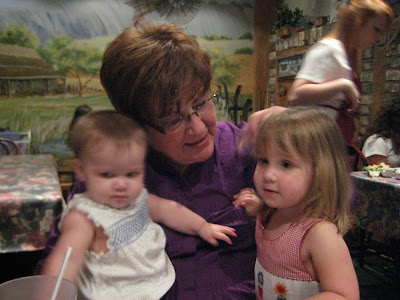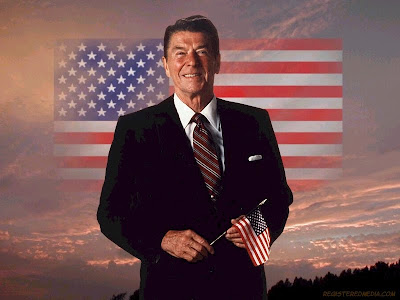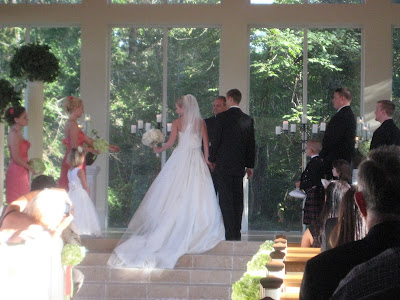Musings of a proud Texas grammy on faith and family "knit together by strong ties of love." Col. 2:2
Tuesday, August 31, 2010
Tracking Hurricane Earl
Several months ago we began planning a long-awaited anniversary trip. As life-long residents of the Gulf Coast, we are always cautious about choosing a destination around the Gulf or in the Caribbean at this time of the year because it is the height of hurricane season. Hurricane Ike is still very fresh in our memories! So...we decided to go to Boston for the history, the cool nights, and the wonderful seafood. We have reservations at an historic downtown hotel very close to the Freedom Walk. I want to see Lexington and Concord, Cambridge, Salem, Plymouth, and all the other famous sites I've taught about in social studies. Who would have thought that Hurricane Earl wants to visit Boston as well?? I didn't know they had hurricanes that far north. Reminds me of that old saying..."Man proposes, God disposes." We're keeping a close watch on the Weather Channel.
Monday, August 23, 2010
The Magic Number
Am I going to retire? Not right away. But it's nice to know I have the option.
My Birthright
My birthright comes, not from my earthly parents, but from my Heavenly Father. Every night at bedtime I read a Psalm that matches that day's date. In reading the one for last night, I suddenly realized that the Psalm for my birthday happens to be the 23rd Psalm. What a wonderful birthright I have, not due to my physical birthday, but due to my spiritual birth as a daughter of the King.
Sunday, August 22, 2010
Grammy's Birthday Lunch
Of course, we had to visit the toy store, because what's a birthday celebration without toys!
Saturday, August 21, 2010
Did I mention that I have the sweetest husband in the whole, wide world???
Sunday, August 15, 2010
Sunday Song
No matter what our future holds, whether we're together one more day or twenty more years, I do know that since we both know Christ as our Saviour we have the precious hope that we will "stroll over Heaven".
Friday, August 13, 2010
Sunday, August 8, 2010
Happy Birthday, Mr. President
President Reagan made the following speech on August 23, 1984 in Dallas. If there was ever a time when we need to hear these words again, it is now.
It's wonderful to be here this morning. The past few days have been pretty busy for all of us, but I've wanted to be with you today to share some of my own thoughts.
These past few weeks it seems that we've all been hearing a lot of talk about religion and its role in politics, religion and its place in the political life of the Nation. And I think it's appropriate today, at a prayer breakfast for 17,000 citizens in the State of Texas during a great political convention, that this issue be addressed.
I don't speak as a theologian or a scholar, only as one who's lived a little more than his threescore ten -- which has been a source of annoyance to some -- and as one who has been active in the political life of the Nation for roughly four decades and now who's served the past 3½ years in our highest office. I speak, I think I can say, as one who has seen much, who has loved his country, and who's seen it change in many ways.
I believe that faith and religion play a critical role in the political life of our nation -- and always has -- and that the church -- and by that I mean all churches, all denominations -- has had a strong influence on the state. And this has worked to our benefit as a nation.
Those who created our country -- the Founding Fathers and Mothers -- understood that there is a divine order which transcends the human order. They saw the state, in fact, as a form of moral order and felt that the bedrock of moral order is religion.
The Mayflower Compact began with the words, ``In the name of God, amen.'' The Declaration of Independence appeals to ``Nature's God'' and the ``Creator'' and ``the Supreme Judge of the world.'' Congress was given a chaplain, and the oaths of office are oaths before God.
James Madison in the Federalist Papers admitted that in the creation of our Republic he perceived the hand of the Almighty. John Jay, the first Chief Justice of the Supreme Court, warned that we must never forget the God from whom our blessings flowed.
George Washington referred to religion's profound and unsurpassed place in the heart of our nation quite directly in his Farewell Address in 1796. Seven years earlier, France had erected a government that was intended to be purely secular. This new government would be grounded on reason rather than the law of God. By 1796 the French Revolution had known the Reign of Terror.
And Washington voiced reservations about the idea that there could be a wise policy without a firm moral and religious foundation. He said, ``Of all the dispositions and habits which lead to political prosperity, Religion and morality are indispensable supports. In vain would that man call himself a patriot who would labour to subvert these firmest props of the duties of men and citizens. The mere Politician . . . and the pious man ought to respect and to cherish religion and morality.'' And he added, ``. . . let us with caution indulge the supposition, that morality can be maintained without religion.''
I believe that George Washington knew the City of Man cannot survive without the City of God, that the Visible City will perish without the Invisible City.
Religion played not only a strong role in our national life; it played a positive role. The abolitionist movement was at heart a moral and religious movement; so was the modern civil rights struggle. And throughout this time, the state was tolerant of religious belief, expression, and practice. Society, too, was tolerant.
But in the 1960's this began to change. We began to make great steps toward secularizing our nation and removing religion from its honored place.
In 1962 the Supreme Court in the New York prayer case banned the compulsory saying of prayers. In 1963 the Court banned the reading of the Bible in our public schools. From that point on, the courts pushed the meaning of the ruling ever outward, so that now our children are not allowed voluntary prayer. We even had to pass a law -- we passed a special law in the Congress just a few weeks ago to allow student prayer groups the same access to schoolrooms after classes that a young Marxist society, for example, would already enjoy with no opposition.
The 1962 decision opened the way to a flood of similar suits. Once religion had been made vulnerable, a series of assaults were made in one court after another, on one issue after another. Cases were started to argue against tax-exempt status for churches. Suits were brought to abolish the words ``under God'' from the Pledge of Allegiance and to remove ``In God We Trust'' from public documents and from our currency.
Today there are those who are fighting to make sure voluntary prayer is not returned to the classrooms. And the frustrating thing for the great majority of Americans who support and understand the special importance of religion in the national life -- the frustrating thing is that those who are attacking religion claim they are doing it in the name of tolerance, freedom, and openmindedness. Question: Isn't the real truth that they are intolerant of religion? They refuse to tolerate its importance in our lives.
If all the children of our country studied together all of the many religions in our country, wouldn't they learn greater tolerance of each other's beliefs? If children prayed together, would they not understand what they have in common, and would this not, indeed, bring them closer, and is this not to be desired? So, I submit to you that those who claim to be fighting for tolerance on this issue may not be tolerant at all.
When John Kennedy was running for President in 1960, he said that his church would not dictate his Presidency any more than he would speak for his church. Just so, and proper. But John Kennedy was speaking in an America in which the role of religion -- and by that I mean the role of all churches -- was secure. Abortion was not a political issue. Prayer was not a political issue. The right of church schools to operate was not a political issue. And it was broadly acknowledged that religious leaders had a right and a duty to speak out on the issues of the day. They held a place of respect, and a politician who spoke to or of them with a lack of respect would not long survive in the political arena.
It was acknowledged then that religion held a special place, occupied a special territory in the hearts of the citizenry. The climate has changed greatly since then. And since it has, it logically follows that religion needs defenders against those who care only for the interests of the state.
There are, these days, many questions on which religious leaders are obliged to offer their moral and theological guidance, and such guidance is a good and necessary thing. To know how a church and its members feel on a public issue expands the parameters of debate. It does not narrow the debate; it expands it.
The truth is, politics and morality are inseparable. And as morality's foundation is religion, religion and politics are necessarily related. We need religion as a guide. We need it because we are imperfect, and our government needs the church, because only those humble enough to admit they're sinners can bring to democracy the tolerance it requires in order to survive.
A state is nothing more than a reflection of its citizens; the more decent the citizens, the more decent the state. If you practice a religion, whether you're Catholic, Protestant, Jewish, or guided by some other faith, then your private life will be influenced by a sense of moral obligation, and so, too, will your public life. One affects the other. The churches of America do not exist by the grace of the state; the churches of America are not mere citizens of the state. The churches of America exist apart; they have their own vantage point, their own authority. Religion is its own realm; it makes its own claims.
We establish no religion in this country, nor will we ever. We command no worship. We mandate no belief. But we poison our society when we remove its theological underpinnings. We court corruption when we leave it bereft of belief. All are free to believe or not believe; all are free to practice a faith or not. But those who believe must be free to speak of and act on their belief, to apply moral teaching to public questions.
I submit to you that the tolerant society is open to and encouraging of all religions. And this does not weaken us; it strengthens us, it makes us strong. You know, if we look back through history to all those great civilizations, those great nations that rose up to even world dominance and then deteriorated, declined, and fell, we find they all had one thing in common. One of the significant forerunners of their fall was their turning away from their God or gods.
Without God, there is no virtue, because there's no prompting of the conscience. Without God, we're mired in the material, that flat world that tells us only what the senses perceive. Without God, there is a coarsening of the society. And without God, democracy will not and cannot long endure. If we ever forget that we're one nation under God, then we will be a nation gone under.
If I could just make a personal statement of my own -- in these 3½ years I have understood and known better than ever before the words of Lincoln, when he said that he would be the greatest fool on this footstool called Earth if he ever thought that for one moment he could perform the duties of that office without help from One who is stronger than all.
I thank you, thank you for inviting us here today. Thank you for your kindness and your patience. May God keep you, and may we, all of us, keep God.
Sunday, August 1, 2010
Wedding Weekend Part 2 (Warning: lots of pictures!)
This is the inside of the chapel. It was nice and cool considering the outside temp was hovering around 100.
 |
Wedding Weekend Part 1
This weekend we have had the pleasure of having our whole family together for a few days. Erin flew in Wednesday night to attend her brother-in-law’s wedding. Lucas came in earlier in the week. Our time together got off to a shaky start because Dan went to the emergency room on Wednesday afternoon. He was having symptoms of a heart attack/stroke. Thankfully, they determined that he was not having either. He is seeing a neurologist on Monday to get to the bottom of the symptoms. In spite of the visit to the emergency room, we were able to pick up Erin at around midnight at the airport.
Thursday Amy and the girls came over for lunch at Tea for Two Tearoom and an afternoon swim. Katie was really excited to see her Aunt Erin.
I’m looking a little (that’s an understatement) wiped out from the previous afternoon and night.
Katie has been taking swimming lessons at Fin’s and was anxious to show off her new “skills.”
I am noticing, though, that Katie’s hair is not wet. She’s still having issues with putting her face in the water. Ha!
Grandpa and Grammy were content to just watch…as long as we could sit under the umbrella to escape the heat!
Hannah chose to watch Yo Gabba Gabba in the comfort of the air-conditioned house.
Thursday evening we went to Lupe Tortilla’s for dinner (Erin and Lucas always have to get a Mexican food fix when they come to Texas!) and then we went to Amy and Chris’ new house.
Katie was just a little on the wild side…
Hannah and Grandpa were rockin’
Friday in between Erin’s bridal luncheon and rehearsal dinner we were able to squeeze in some more swimming.
Hannah relaxed in her “lazy boy.” Isn’t that a sweet little face?









































